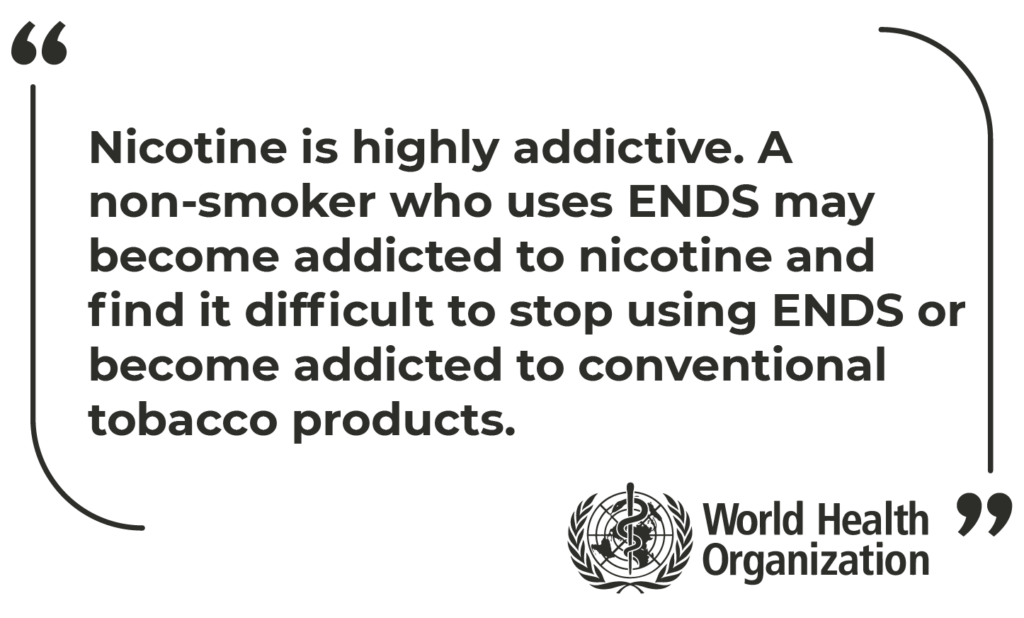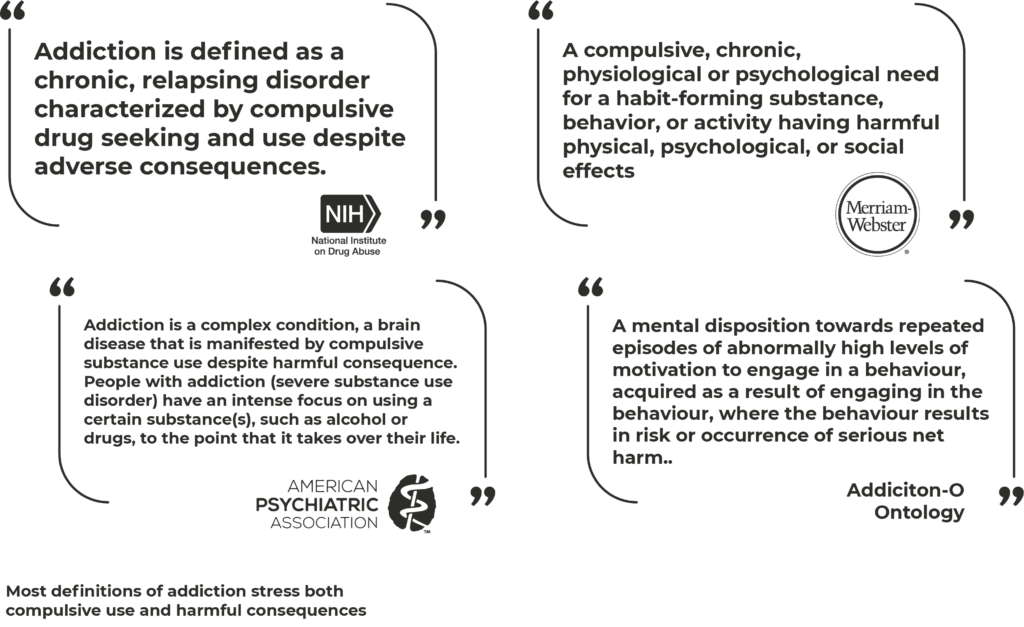Republished from Clivebates.com with the consent of the author


The claim of addiction depends on what you mean by addiction and how the nicotine is delivered. WHO does not bother with such subtleties. There are two issues.
First, what is meant by the word “addiction”? This term is often used very loosely and often with the intention of stigmatising “the addict”, However, it has a specific meaning that does not apply to all forms of nicotine use.

E-cigarette use does not meet this definition for most users because nicotine itself isn’t that harmful and vaping just isn’t that harmful either.
Second, it depends on the way it is delivered. The dependence-forming characteristics of nicotine vary according to how it is delivered to the body – how much and how fast it reaches the brain, and also whether there are other agents that add to the effect. It is quite likely that many smokers who have taken up vaping “transfer” their nicotine dependence to the new products while benefitting from the greatly reduced risk.
This issue was discussed in the paper in the American Journal of Public Health by fifteen past presidents of the Society for Research on Nicotine and Tobacco.

Written by Clive Bates


